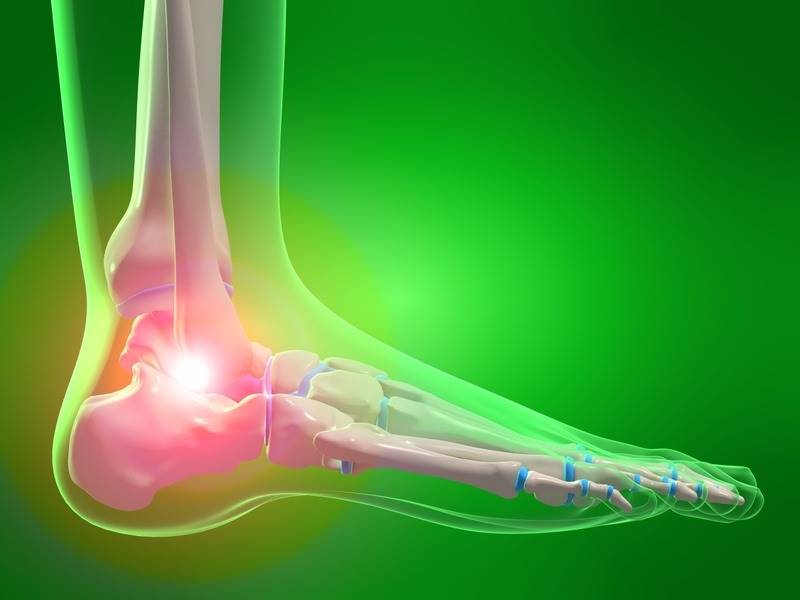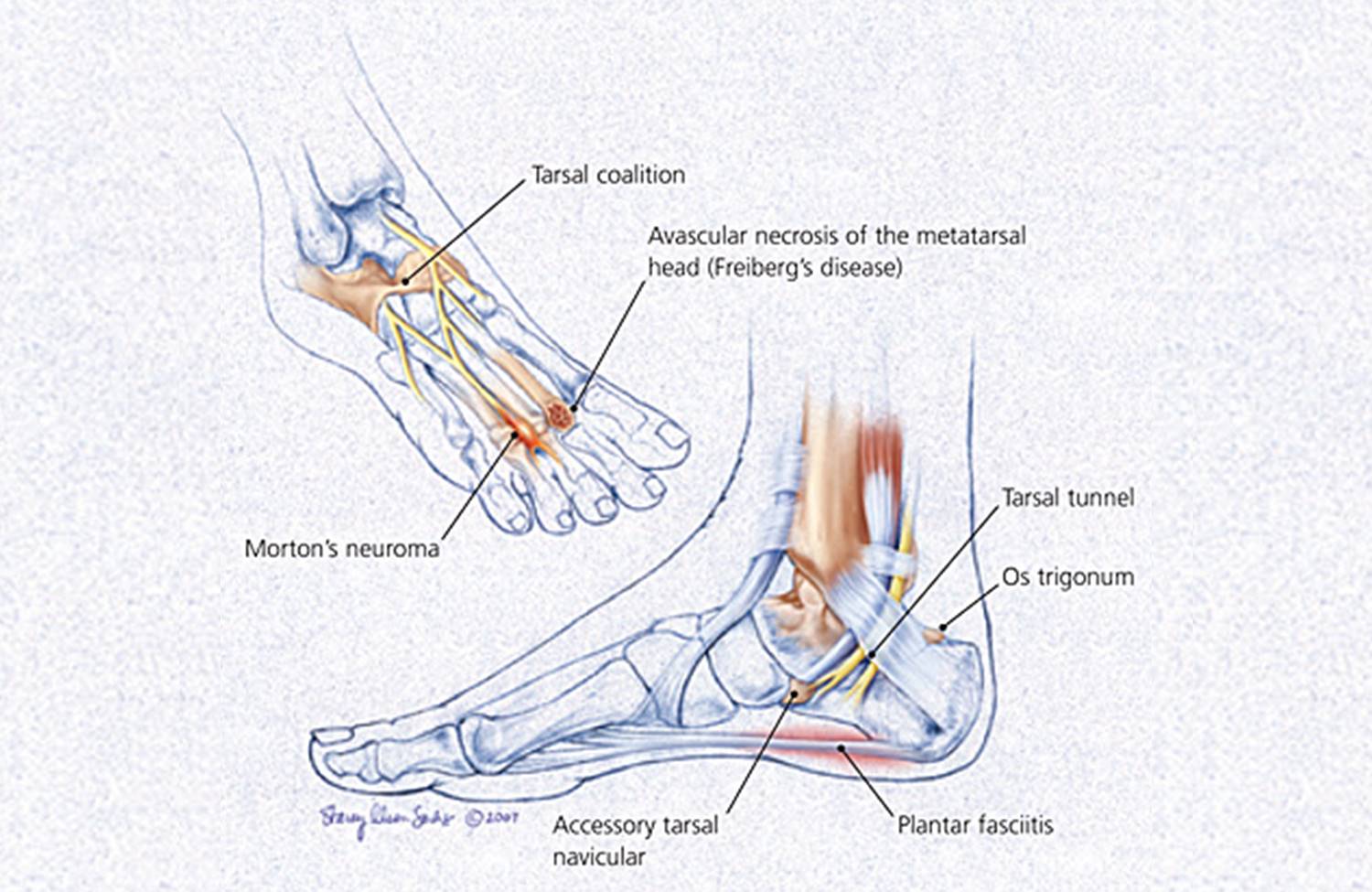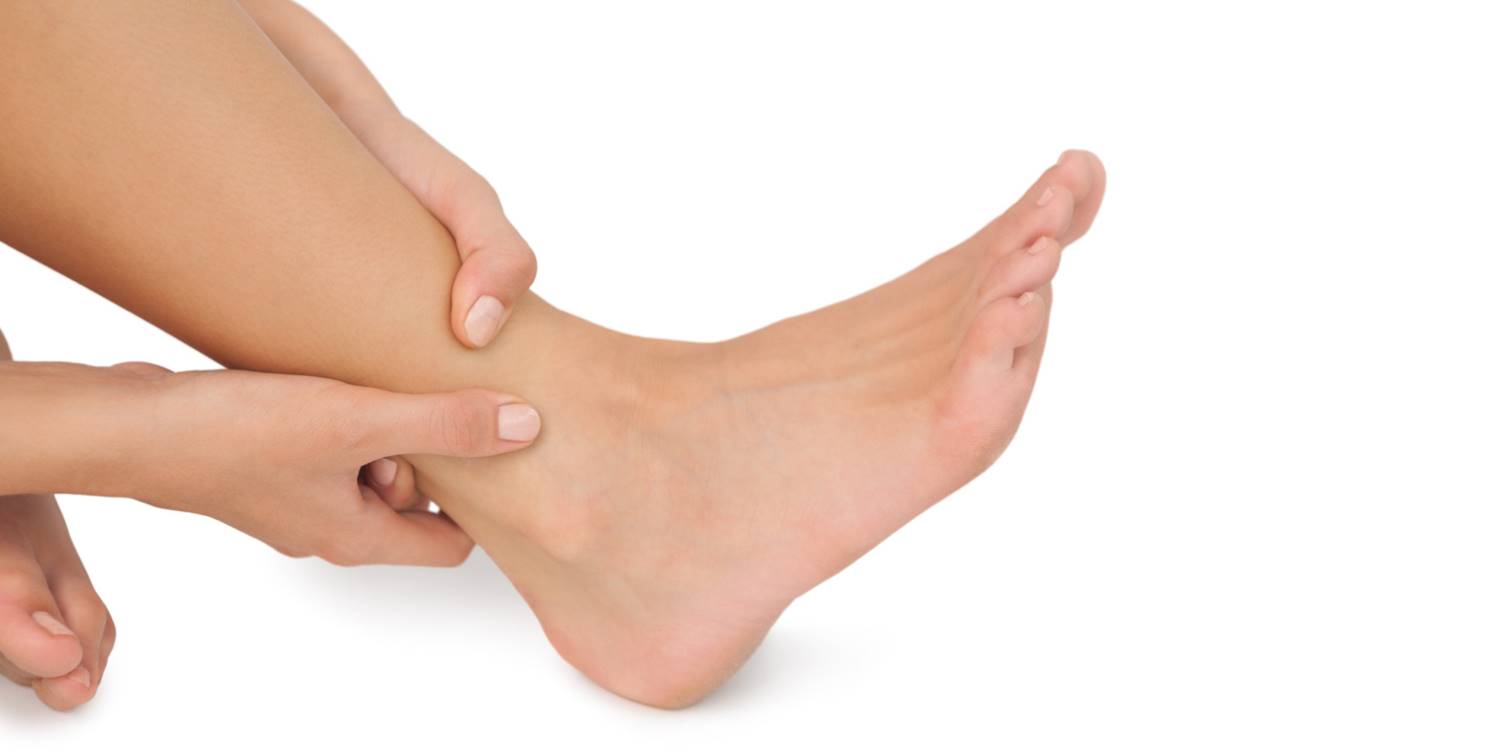Plantar fasciitis is one of the most common causes for heel and foot pain. Do you ever feel pain in the bottom of your foot? Do you ever notice heel pain after first rising out of bed or standing after a prolonged period?

If so, these are signs that you may be suffering from plantar fasciitis syndrome. Plantar fasciitis is the inflammation of the fascia, the fibrous band of tissue connecting your heel bone to the base of your toes. Although the condition begins slowly with mild heel pain, if gone untreated, plantar fasciitis develops into a chronic condition. As the condition worsens, it can obstruct your level of activity as well as create further foot, knee, hip, and back pain resulting from the difficulty in walking. According to the Journal of Foot and Ankle Surgery, laser treatment, as offered at Foothill Family Chiropractic, may be one of the most effective treatment solutions for acute and chronic plantar fasciitis.

Plantar fasciitis symptoms
Plantar fasciitis is described as a pain in the bottom of the foot. Typically, it is a stabbing pain located near the heal. Signs that you may be suffering from plantar fasciitis include:
1) Heel and/or foot pain when you step out of bed and take your first few steps.
2) Heel and/or foot pain after standing for a prolonged period.
3) Heel and/or foot pain after rising from sitting for a long period.
4) Noticing the pain worsening after exercise (not during).
5) Suffering from heel and/or foot pain when taking the stairs.
In short, if you have noticed pain in your feet when rising or applying pressure to a particular area of your foot and the pain subsides as you walk it out, then you should be seen by Dr. Mehr for plantar fasciitis. Again, if this condition goes untreated, symptoms can worsen over time.
Plantar fasciitis causes
What causes plantar fasciitis? Well, it usually is a result of damage, an injury, or accumulation of smaller injuries to the plantar fascia, the band of tissue underneath your foot. As a result of the damage, the plantar fascia thickens, causing the painful condition known as plantar fasciitis. While the condition is seen in both men and women, it is more common among women. Some common causes include:
1) Aging.
2) Being overweight.
3) Standing on your feet for long periods.
4) Wearing high-heeled shoes and abruptly switching to flats.
5) Wearing worn out shoes with little support and thin soles.
6) Trying a new exercise or increasing the intensity of the activity.
7) Medical conditions such as rheumatoid arthritis or lupus.
8) Physical conditions such as having flat feet, high arches, uneven legs, or tight Achilles tendons.
9) Having an abnormal walk.
Plantar fasciitis treatment
Repeated studies have shown that laser therapy is one of the most effective solutions for acute and chronic plantar fasciitis. Unlike treatments such as cortisone injections, laser treatment helps heal the condition. Temporary pain suppressants, such as the cortisone injections, stop inflammatory healing responses, therefore only masking the pain and consequently risking further degeneration or rupture. Laser treatment, on the other hand, is a non-invasive, cost-effective, solution to stop pain and repair damage. It’s a form of regenerative medicine as it can stimulate revascularization of the thickened tissues.
“This protocol takes chronically damaged, thickened or torn tissue, and creates an ‘uptick’ in the inflammatory cascade via the controlled irritation to the tissue to get it to become microscopically ‘acutely’ inflamed so the immune system can now jump in and turn on the inflammatory cascade to start the repair process,” says Dr. Schoene, a Fellow of the American College of Foot and Ankle Surgeons and the American Academy of Podiatric Sports Medicine.

Plantar fasciitis is a painful foot condition that can arise from everyday circumstances such as aging, standing, being overweight, etc… Although the symptoms begin with frustrating, stabbing pain early in the day and subside throughout, this does not mean that the condition can go untreated. Plantar fasciitis is known to hinder one’s ability to walk, live an active lifestyle, as well as subsequently result in foot, knee, hip, and back pain. There are treatment options out there, such as ineffective cortisone injections or expensive and invasive surgeries, however, as the data supports, laser treatment is the recommended solution for pain relief and damage repair. To stop the pain and repair the damage of plantar fasciitis, call our office located in La Verne, CA, to book an appointment with Dr. Mehr.
909-596-1038

